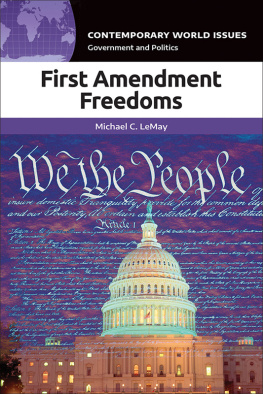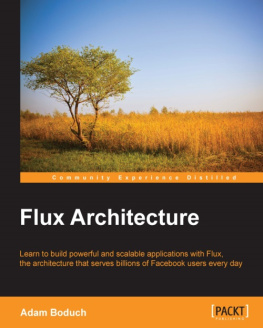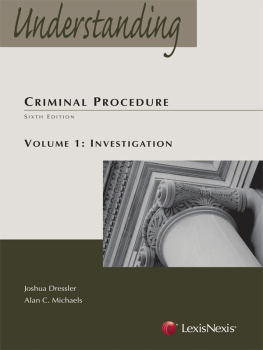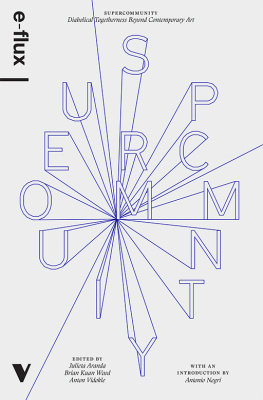Michael C. Gizzi - The Fourth Amendment in Flux
Here you can read online Michael C. Gizzi - The Fourth Amendment in Flux full text of the book (entire story) in english for free. Download pdf and epub, get meaning, cover and reviews about this ebook. year: 2016, genre: Politics. Description of the work, (preface) as well as reviews are available. Best literature library LitArk.com created for fans of good reading and offers a wide selection of genres:
Romance novel
Science fiction
Adventure
Detective
Science
History
Home and family
Prose
Art
Politics
Computer
Non-fiction
Religion
Business
Children
Humor
Choose a favorite category and find really read worthwhile books. Enjoy immersion in the world of imagination, feel the emotions of the characters or learn something new for yourself, make an fascinating discovery.

- Book:The Fourth Amendment in Flux
- Author:
- Genre:
- Year:2016
- Rating:5 / 5
- Favourites:Add to favourites
- Your mark:
- 100
- 1
- 2
- 3
- 4
- 5
The Fourth Amendment in Flux: summary, description and annotation
We offer to read an annotation, description, summary or preface (depends on what the author of the book "The Fourth Amendment in Flux" wrote himself). If you haven't found the necessary information about the book — write in the comments, we will try to find it.
The Fourth Amendment in Flux — read online for free the complete book (whole text) full work
Below is the text of the book, divided by pages. System saving the place of the last page read, allows you to conveniently read the book "The Fourth Amendment in Flux" online for free, without having to search again every time where you left off. Put a bookmark, and you can go to the page where you finished reading at any time.
Font size:
Interval:
Bookmark:
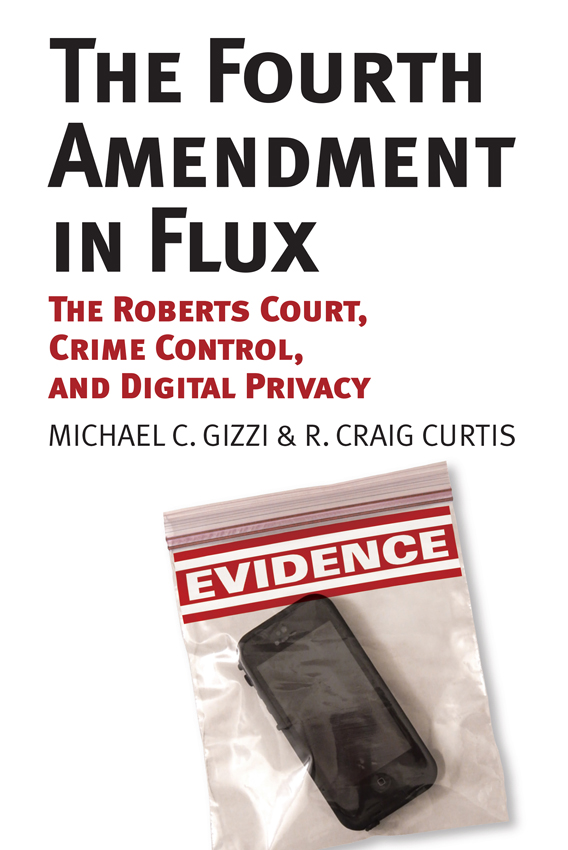
Afterword
FEBRUARY 2016
As this book was in the final stages of production, Justice Antonin Scalia suffered a heart attack and died. While we discussed in the possible consequences if Justice Scalia were to retire, no one expected such a sudden end to his life and judicial career. His death marks the close of almost thirty years on the Supreme Court, a time in which his Fourth Amendment decisions and approaches to the law significantly influenced case outcomes and police practices. Critics and supporters alike agree that Antonin Scalia possessed a powerful mind and was an influential justice in Fourth Amendment cases.
One area of the law shaped by Justice Scalia is the resurrection of the trespass doctrine. Justice Scalias decisions in United States v. Jones ( 2012 ) and Florida v. Jardines ( 2013 ) relied on a narrow property-based approach to the Fourth Amendment in which the physical intrusion into a constitutionally protected area was the primary rationale for suppressing the search. It is unlikely that a Court without Justice Scalia will apply this doctrine in future cases because the other justices seem much more committed to a Katz reasonable expectation of privacy approach. Perhaps more significantly, Scalias death could mark the turning point for the demise of the third party doctrine, which has come under fire in several cases in recent years. The third party doctrine is key to understanding the issues raised when the police want to use a cell phone to track the location of a suspect and to resolving issues of the constitutionality of granting law enforcement access to data stored by cell and internet service providers. Both types of cases are likely to come to the Court in the next few years.
Justice Scalias passing brings into sharp focus the effect that presidential elections have on the Court. In the days after his death, Republican senators and candidates urged that no nominee be confirmed until after the election, but the president insisted that it is his constitutional duty to nominate a replacement and that the Senate should fully consider his choice. A third Obama appointment could potentially shift the balance of power on the Court and further limit the influence of the jurisprudence of crime control. While Justice Scalia voted for the defendant in more than half of the Fourth Amendment cases in the last five years, another Obama justice would likely be a stronger, and less idiosyncratic, ally of the three liberals on the current Court. The addition of a justice more sympathetic to privacy issues could mean that Justice Breyer would become the swing vote with regard to search and seizure law. Justices Thomas, Alito, and Kennedy would likely remain supporters of law and order and would likely be joined by the chief justice, except in cases involving digital privacy.
Our book is titled The Fourth Amendment in Flux, and we have argued that many issues that were seemingly settled law under the jurisprudence of crime control are being revisited today. Justice Scalias death only further increases the sense of flux by injecting an unknown voice into future cases and removing one of the Courts most vibrant personalities. Moreover, there are still two additional justices on the Court who are older than Scalia was at the time of his death. Even if Obama is successful in nominating a replacement for Scalia, it is very likely that the winner of the 2016 presidential election will have the opportunity to appoint at least one member of the Supreme Court. Of course, if no replacement for Scalia is confirmed prior to the inauguration of a new president, the impact of the election will be magnified. On one hand, if a Republican wins the presidency in 2016 , the crime control approach to the Fourth Amendment could be strengthened and could dominate the Court in a way not seen since the Rehnquist Court. On the other hand, if a Democrat wins, at least one justice with weaker ties to the jurisprudence of crime control is likely to replace Justice Scalia. We do not possess a crystal ball that allows us to see into the future, but we do understand that the jurisprudence of crime control will not be eliminated overnight regardless of who is appointed to the Court.
All of this comes at a time when the partisan rancor in our nation seems to be at its worst and when both liberals and some conservatives are pressing for criminal justice reform. In addition, issues of digital privacy grow in importance as our society becomes ever more dependent on the use of digital devices. The political pressures on the Court are great. Justice Scalias death not only reinforces our argument that the Fourth Amendment is in flux, but in many ways makes it even more significant, as key challenges in the law of search and seizure seem certain to come to the Court in the next several years.
The Fourth Amendment in Flux
The Fourth Amendment in Flux
the roberts court,
crime control,
and digital privacy
Michael C. Gizzi
R. Craig Curtis

2016 by the University Press of Kansas
All rights reserved
Published by the University Press of Kansas (Lawrence, Kansas 66045 ), which was organized by the Kansas Board of Regents and is operated and funded by Emporia State University, Fort Hays State University, Kansas State University, Pittsburg State University, the University of Kansas, and Wichita State University
Library of Congress Cataloging-in-Publication Data
Names: Gizzi, Michael C., author. | Curtis, R. Craig, author.
Title: The fourth amendment in flux : the Roberts court, crime control, and digital privacy / Michael C. Gizzi, R. Craig Curtis.
Description: Lawrence, Kansas : University Press of Kansas, 2016 . | Includes index.
Identifiers: LCCN 2016000656 | ISBN 978-0-7006-2256-6 (hardback) | ISBN 978-0-7006-2257-3 (paperback) | ISBN 978-0-7006-2258-0 (ebook)
Subjects: LCSH: Searches and seizuresUnited StatesCases. | United States. Supreme Court. | BISAC: LAW / Constitutional. | POLITICAL SCIENCE / Constitutions.
Classification: LCC KF 9630 .G 59 2016 | DDC 345.73 / 0522 dc
LC record available at http://lccn.loc.gov/2016000656.
British Library Cataloguing-in-Publication Data is available.
Printed in the United States of America
10 9 8 7 6 5 4 3 2 1
The paper used in this publication is recycled and contains percent postconsumer waste. It is acid free and meets the minimum requirements of the American National Standard for Permanence of Paper for Printed Library Materials Z 39.48-1992 .
Contents
Preface
We set out to write this book on the Roberts Court and the Fourth Amendment after a multiyear collaboration on a variety of related projects. Both of us have long been fascinated by the Fourth Amendment, and by how the law has developed over the past fifty years. We began our work together writing on the law of vehicle searches, and had been particularly interested in the judicial impact of Arizona v. Gant, the Supreme Court decision in 2009 that modified the law of vehicle searches incident to arrest. When we first approached Chuck Myers at the University Press of Kansas, it was with the idea of writing a book on Arizona v. Gant. We were so pleasantly pleased when Chuck suggested that we think bigger, and consider a book on the broader issues of the Fourth Amendment during the Roberts Court and, in particular, the role that technology was playing in shaping changes in the law. This occurred prior to the Supreme Courts decision in 2014 in
Font size:
Interval:
Bookmark:
Similar books «The Fourth Amendment in Flux»
Look at similar books to The Fourth Amendment in Flux. We have selected literature similar in name and meaning in the hope of providing readers with more options to find new, interesting, not yet read works.
Discussion, reviews of the book The Fourth Amendment in Flux and just readers' own opinions. Leave your comments, write what you think about the work, its meaning or the main characters. Specify what exactly you liked and what you didn't like, and why you think so.



